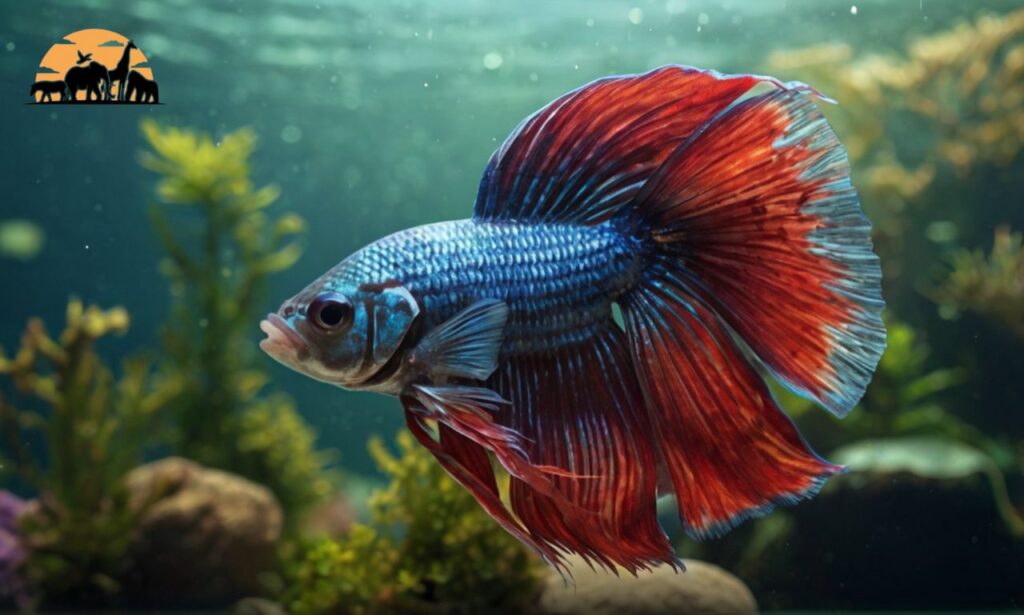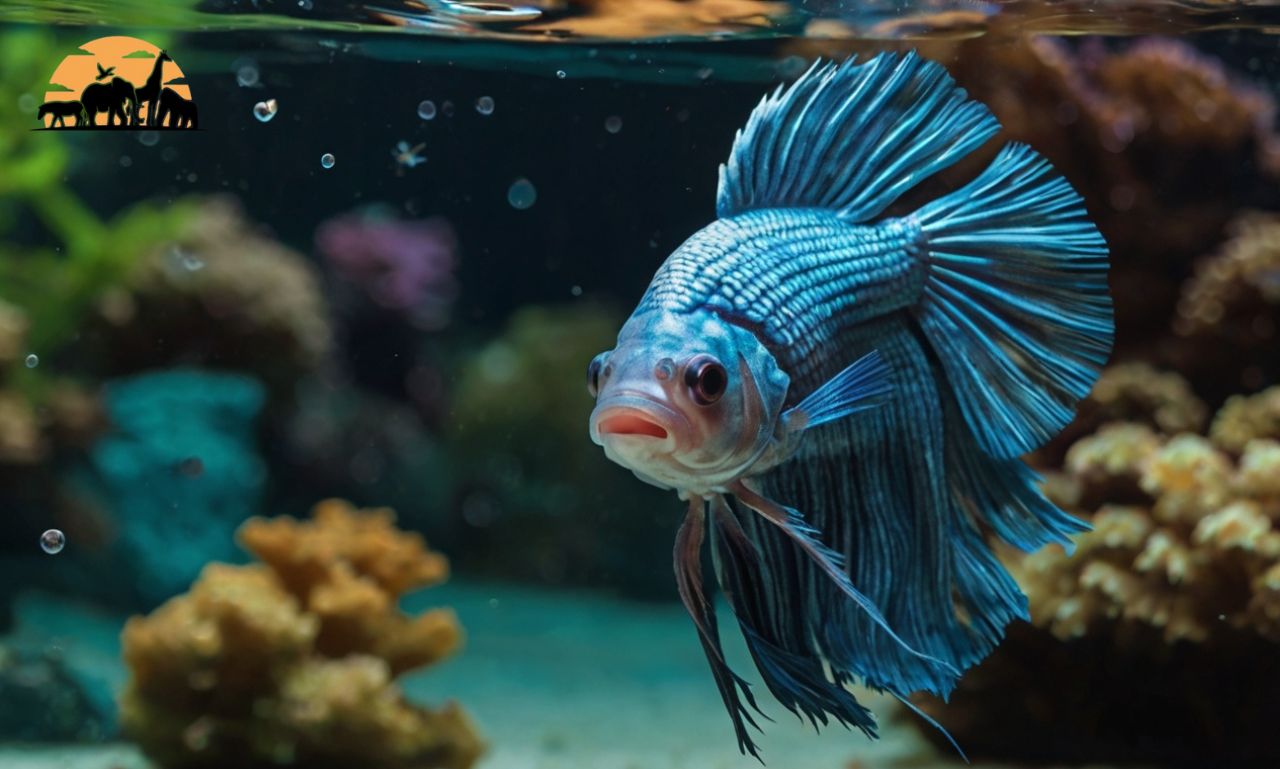Introduction
Betta fish, also known as Siamese fighting fish, are popular among aquarium enthusiasts for their vibrant colors and flowing fins. While they are relatively easy to care for, understanding their lifespan and how to extend it is important for any potential betta owner. In this article, we will explore how long betta fish typically live, factors that influence their lifespan, and tips for providing the best care to help your betta live a longer, healthier life.
Average Lifespan of Betta Fish
How Long Do Betta Fish Typically Live?
The average lifespan of a betta fish is about 2 to 5 years when kept in captivity under proper care. With ideal conditions, some bettas can even live up to 6 or 7 years, but this is less common. Their lifespan is influenced by various factors, including genetics, diet, and the quality of their living environment.
- Wild Bettas: In the wild, bettas usually have shorter lifespans due to predators, fluctuating temperatures, and limited food sources. They may only live for about 1 to 2 years.
- Captive Bettas: Bettas kept in tanks or bowls with controlled conditions tend to live longer, especially if provided with appropriate care.

Factors That Affect a Betta Fish’s Lifespan
1. Tank Size and Environment:
One of the most critical factors in a betta’s lifespan is the size of its tank and the overall quality of its environment.
- Tank Size: Bettas thrive in tanks that are at least 5 gallons or larger. Smaller tanks, like bowls, can lead to poor water quality and stress, which can shorten their lifespan.
- Water Quality: Maintaining clean, filtered water is essential. Regular water changes (about 25% every week) help remove waste and prevent the buildup of harmful toxins like ammonia.
- Water Temperature: Bettas are tropical fish and need a water temperature between 76°F to 82°F (24°C to 28°C). A heater is often required to keep the water in this range, especially in cooler climates.
2. Diet and Nutrition:
A balanced diet is crucial for a betta’s health and longevity.
- High-Quality Betta Pellets: Betta-specific pellets should make up the primary diet, as they contain essential nutrients.
- Protein-Rich Foods: Bettas are carnivorous and benefit from protein-rich foods like freeze-dried or frozen bloodworms, brine shrimp, and daphnia. These can be given as occasional treats.
- Avoid Overfeeding: Overfeeding can lead to obesity and poor water quality due to uneaten food, which can harm the fish. Feed your betta 2 to 3 small pellets once or twice a day, and adjust based on its appetite.
3. Genetics and Health:
The genetic background of a betta fish also plays a role in its lifespan.
- Selective Breeding: Many bettas are selectively bred for vibrant colors and long fins, which can sometimes result in a weakened immune system. Choosing a betta from a reputable breeder can improve the chances of a healthier fish.
- Disease Prevention: Common diseases like fin rot, ich, and swim bladder disorder can affect a betta’s lifespan. Early detection and treatment with aquarium-safe medications can help manage these conditions.
4. Stress Levels:
Minimizing stress is important for the well-being of betta fish.
- Aggressive Behavior: Bettas are known for their territorial nature and should not be kept with other male bettas or fin-nipping fish. A stressed or injured betta is more prone to illness.
- Proper Tank Setup: Including plants, hiding spots, and gentle filtration helps create a comfortable environment, reducing stress for your betta.

How to Extend the Lifespan of Your Betta Fish
If you want your betta fish to live a long and healthy life, here are some essential care tips:
1. Choose a Healthy Betta:
When buying a betta, select one that is active and has vibrant colors. Avoid fish that appear lethargic, have clamped fins, or show signs of illness such as white spots or damaged fins.
2. Maintain a Clean Tank:
Regular water changes are crucial to keep the tank environment healthy. A clean tank prevents the buildup of toxins that can harm your betta’s health.
3. Provide a Proper Diet:
Offer a variety of high-quality betta pellets and protein-rich treats. Avoid feeding them foods meant for other types of fish, as these may not meet their dietary needs.
4. Monitor the Water Temperature:
Use a reliable aquarium heater and thermometer to ensure the water stays within the ideal temperature range. Sudden changes in temperature can cause stress and illness.
5. Enrich Their Environment:
Bettas enjoy exploring their environment, so adding decorations like live or silk plants and hiding places can keep them active and reduce boredom.
Signs That Your Betta Fish Is Aging
As bettas age, you may notice some changes in their appearance and behavior:
- Dull Colors: A once-bright betta may begin to show duller colors as it ages.
- Slower Movement: Older bettas may swim less actively and spend more time resting.
- Changes in Appetite: An older betta may eat less than it did when it was younger.
Recognizing these signs can help you adjust their care to ensure they remain comfortable in their later years.
Watch
Conclusion:
With proper care, betta fish can live 2 to 5 years or even longer in a home aquarium. Their lifespan depends on factors like water quality, diet, and a stress-free environment. By understanding the needs of your betta and providing a suitable living space, you can ensure that your colorful companion lives a happy and healthy life. Taking the time to care for your betta properly will not only extend its life but also allow you to enjoy the company of these beautiful fish for years to come.
Read More About Chinese Red Dog
FAQs:
1. How long do betta fish live in captivity?
Betta fish typically live 2 to 5 years in captivity with proper care, but some can live up to 6 or 7 years.
2. Can betta fish live longer than 5 years?
Yes, with ideal care, including a proper diet and environment, some bettas can live up to 6 or 7 years, though it’s less common.
3. What factors affect a betta fish’s lifespan?
A betta’s lifespan is influenced by tank size, water quality, diet, genetics, and stress levels.
4. Do betta fish live longer in bigger tanks?
Yes, bettas often live longer in larger tanks (5 gallons or more) because it helps maintain better water quality and reduces stress.
5. How often should I change the water for my betta?
Perform 25% water changes weekly to keep the tank clean and maintain a healthy environment for your betta.

